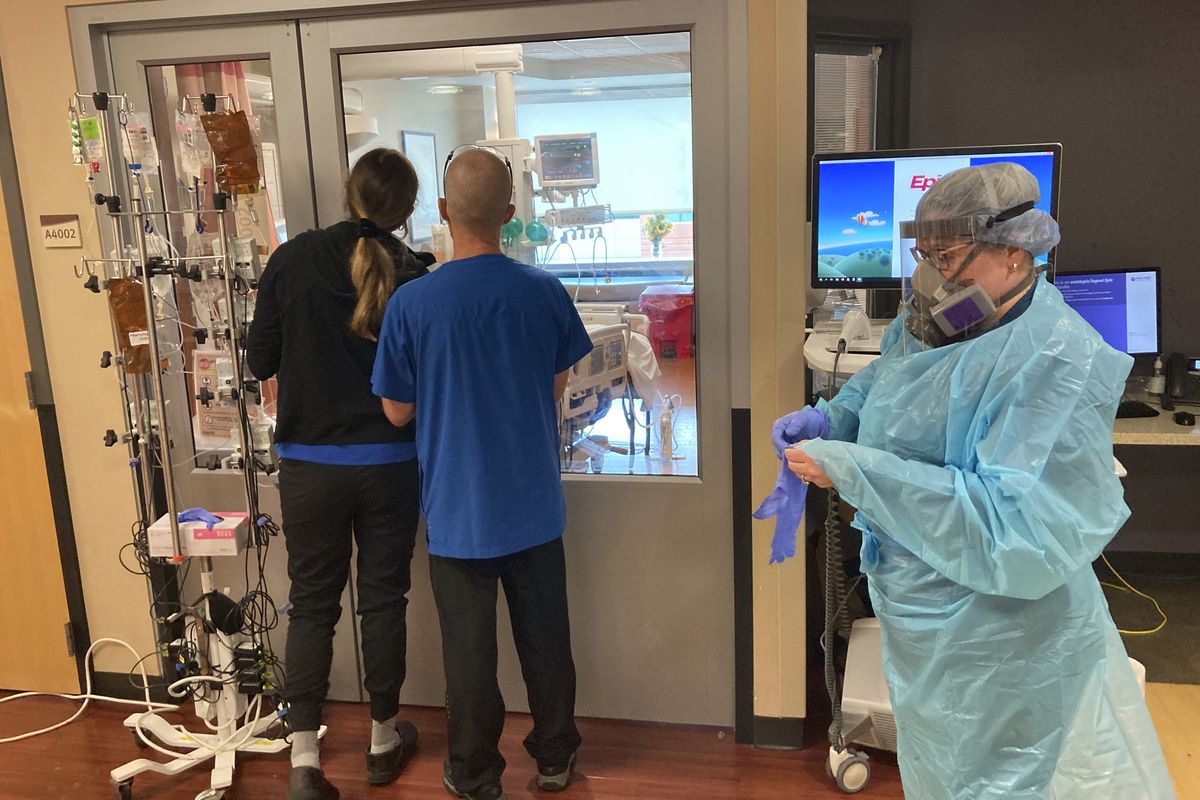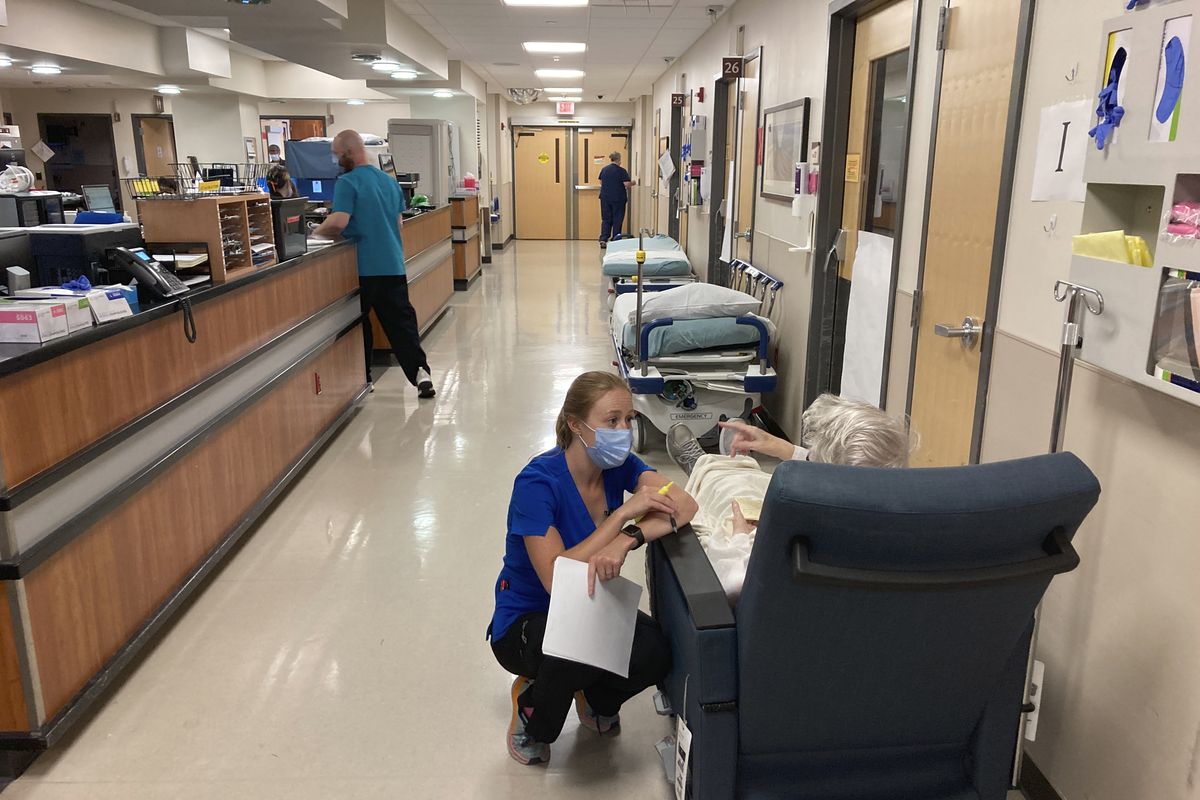‘Crisis teams’ sent to hard-hit COVID hospitals in Oregon
FILE - In this Aug. 20, 2021, file photo, two visitors peer into the room of a COVID-19 patient in the intensive care unit at Salem Hospital in Salem, Ore., as a nurse dons full protective gear before going into the room of another patient. Gov. Kate Brown announced Wednesday, Aug. 25, 2021, that the state has contracted with a medical staffing company to provide up to 500 health care workers to hospitals around the state to help respond to the surge in patients due to the delta variant. (Associated Press)
PORTLAND – Oregon will deploy “crisis teams” of hundreds of nurses, respiratory therapists, paramedics and nursing assistants to regions of the state hardest hit by a surge in COVID-19 hospitalizations that have stretched hospitals to the limit, Gov. Kate Brown said Wednesday.
The state has finalized a contract with a medical staffing company that will send up to 500 health care providers to central and southern Oregon, where hospitals have been slammed by a surge in coronavirus patients, most of them unvaccinated. Smaller teams will also head to long-term care facilities around the state.
COVID-19 hospitalizations have increased 990% in Oregon since July 9, according to health officials.
The personnel from Jogan Health Systems will head to Bend, Redmond, Medford, Ashland, Grants Pass and Roseburg and can move as conditions required, Brown said. The plan also calls for 60 additional nurses and clinical staff from provider AMN Healthcare, but plans for where those medical workers will be have not been finalized.
“The deployment of crisis response teams should provide some welcome relief to our hospitals,” Brown said. “The hospital crisis we are facing isn’t just about beds – it’s about having enough trained health care professionals to treat patients.”
Under the contract, response teams will head to central Oregon to support the St. Charles Health System in Bend and Redmond areas, and to southern Oregon to support Asante hospitals in Medford, Ashland, and Grants Pass, as well as Providence-Medford Medical Center and Mercy Medical Center in Roseburg.
The teams will be supported by up to 300 registered nurses in medical-surgical, emergency departments, and critical care; 20 paramedics; 61 certified nursing assistants; 34 respiratory therapists; and five medical technicians, according to a statement.
In addition, 10 emergency teams will head to long-term care facilities around the state. They will be made up of three registered nurses and five certified nursing assistants.
The state will spend a maximum of $100 million on the Jogan Health Systems contract and a maximum of $19.6 million on the AMN Healthcare contract, said Charles Boyle, the governor’s deputy communications manager. The contracts are for 13 weeks and can be extended if needed, he said.
The state will seek reimbursement from the Federal Emergency Management Agency for the costs.
Oregon, long upheld as a pandemic success story, has been clobbered by the virus this summer.
It’s one of a handful of states with an indoor mask mandate in effect and was the first on Tuesday to reinstitute a statewide mask requirement for outdoor public areas where people are close together.
Coronavirus cases, fueled by the highly transmissible delta variant first detected in India, have overwhelmed hospitals in the Pacific Northwest state over the past month. As of Wednesday 1,080 people with COVID-19 were hospitalized, beating the record set the previous day by 80 people. More than 90% of Oregon’s adult hospital and ICU beds are currently full.
Prior to this month, the state’s record of hospitalizations during the pandemic was 622 in November, which occurred during a winter surge and when vaccines were not yet available.
The governor has also instituted a vaccine mandate for staff and volunteers in K-12 schools, a mask mandate in schools and a requirement that health care workers and state employees be fully vaccinated by Oct. 18.
There were fewer than 50 intensive care unit beds available statewide this week. Many hospitals have canceled elective surgeries, and some patients are housed in hallways instead of rooms.
In addition to the medical crisis teams announced Wednesday, Brown has dispatched about 1,500 National Guard troops to hospitals around the state to help with logistics and nonmedical tasks.

